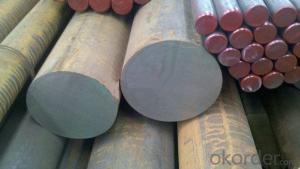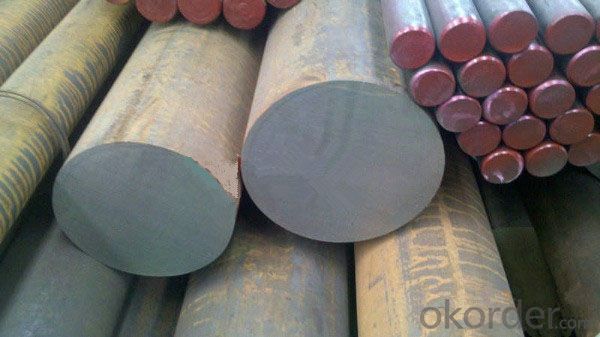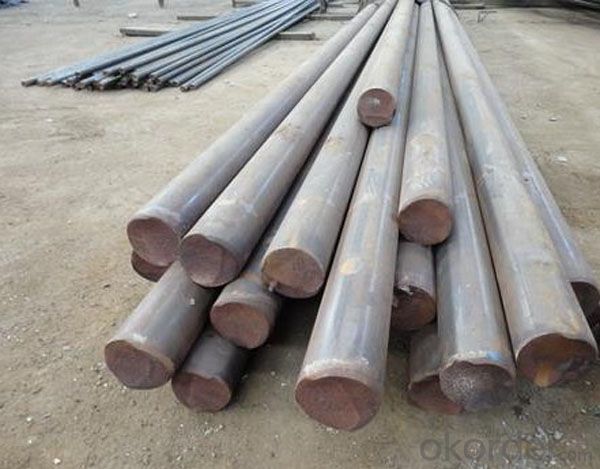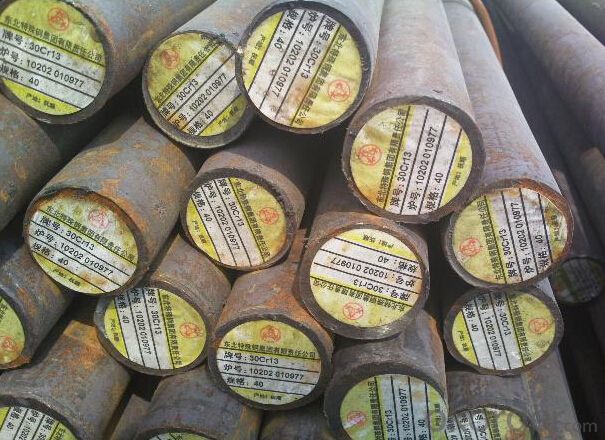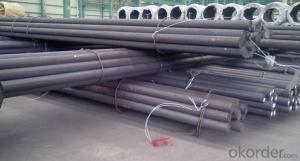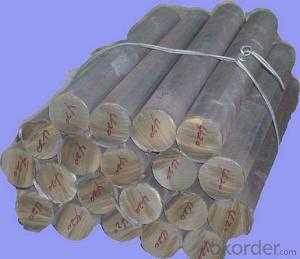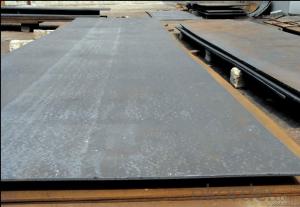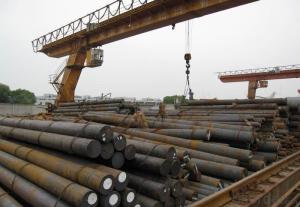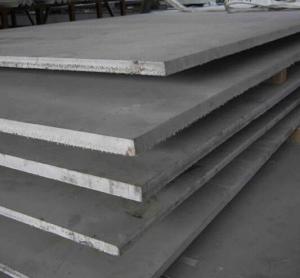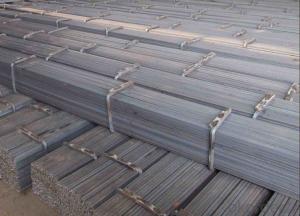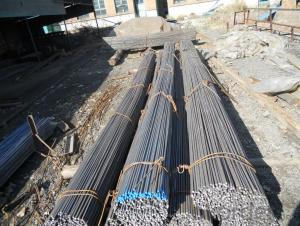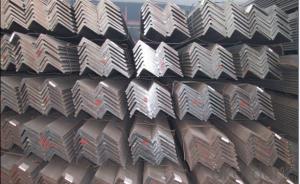Special Steel Forged Carbon Steel SS400 Q235
- Loading Port:
- China main port
- Payment Terms:
- TT OR LC
- Min Order Qty:
- 30 m.t.
- Supply Capability:
- 10000 m.t./month
OKorder Service Pledge
OKorder Financial Service
You Might Also Like
Specification
Product Information
1 Grade Comparison:
GB | ASTM | JIS | EN |
Q235 | Grade D | SS400 | S235JR(1.0038) /S235JO(1.0114) /S235J2(1.0117) |
2 Chemical Composition:
Q235A
C | Mn | Si | S | P |
0.14-0.22 | 0.30-0.65 | ≤0.30 | ≤0.050 | ≤0.045 |
Q235B
C | Mn | Si | S | P |
0.12-0.20 | 0.30-0.70 | ≤0.30 | ≤0.045 | ≤0.045 |
Q235C
C | Mn | Si | S | P |
≤0.18 | 0.35-0.80 | ≤0.30 | ≤0.035 | ≤0.035 |
Q235D
C | Mn | Si | S | P |
≤0.17 | 0.35-0.80 | ≤0.30 | ≤0.035 | ≤0.035 |
3 Brief Introduction:
Dimension | 13-350mm |
Length | 2-13m or as per your request |
Delivery condition | Hot rolled |
Heat Treatment | Normalizing, Annealing, Quenching |
Packing | Standard seaworthy packing or according to your requirements |
4 Mechanical Property:
Thickness/diameter(mm) | Tensile strength | Yield strength | Elongation rate |
≤16 |
375MPa-500MPa | ≥235MPa | ≥26% |
16-40 | ≥225MPa | ≥25% | |
40-60 | ≥215MPa | ≥24% | |
60-100 | ≥205MPa | ≥23% | |
100-150 | ≥195MPa | ≥22% | |
>150 | ≥185MPa | ≥21% |
Product Show
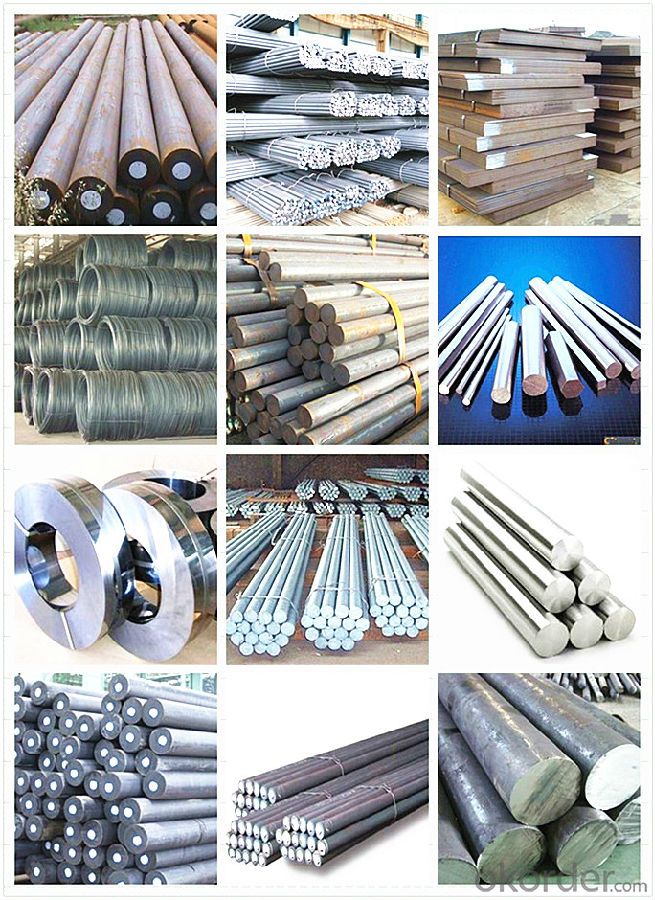
Workshop Show
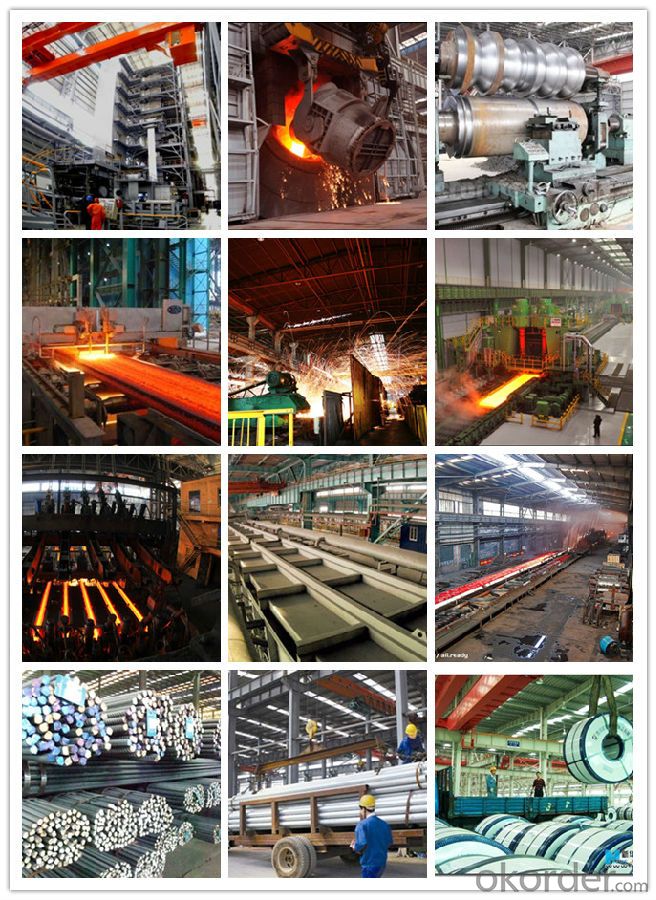
Shipping
1. FedEx/DHL/UPS/TNT for samples, Door-to-Door;
2. By Air or by Sea for batch goods, for FCL; Airport/ Port receiving;
3. Customers specifying freight forwarders or negotiable shipping methods!
Delivery Time: 3-7 days for samples; 5-25 days for batch goods.
Payment Terms
1.Payment: T/T, L/C, Western Union, MoneyGram,PayPal; 30% deposits; 70% balance before delivery.
2.MOQ: 1pcs
3.Warranty : 3 years
4.Package Informations: 1) EXPORT, In 20 feet (GW 25 ton) or 40 feet Container (GW 25 ton)
2)as customer's requirement
Why choose us?
(1) The leading exporter in China special steel industry.
(2) Large stocks for various sizes, fast delivery date.
(3) Good business relationship with China famous factories.
(4) More than 7 years steel exporting experience.
(5) Good after-sales service guarantee.
- Q: How does bearing steel resist fatigue?
- Bearing steel resists fatigue due to its high strength, durability, and resistance to deformation. It has a carefully controlled chemical composition and heat treatment process that enhances its mechanical properties, such as hardness and toughness. This allows bearing steel to withstand repeated cycles of stress and loading without experiencing significant fatigue or failure. Additionally, its microstructure, including fine grain size and uniform distribution of carbides, helps to distribute stress evenly and prevent the formation of cracks or weak points that could lead to fatigue failure.
- Q: Can special steel be used in the production of springs?
- Yes, special steel can be used in the production of springs. Special steel, such as alloy steel or stainless steel, is often preferred for its high strength, durability, and resistance to corrosion, making it suitable for applications where springs need to withstand heavy loads or harsh environments.
- Q: How does special steel perform in electrical conductivity applications?
- Special steel, which is also known as stainless steel, offers exceptional electrical conductivity properties in a wide range of applications. It finds extensive use in electrical engineering and electronics owing to its high resistance against corrosion and low electrical resistance. By incorporating specific alloys like chromium and nickel, its conductivity is further enhanced, making it the ideal option for efficient electricity conduction. Within electrical conductivity applications, special steel demonstrates low resistivity, enabling the seamless flow of electrical current with minimal energy loss. Its low resistance plays a vital role in minimizing heat generation, which is crucial for preventing overheating and ensuring the efficient functioning of electrical components. Special steel also possesses outstanding magnetic properties, making it a suitable choice for applications that demand both electrical conductivity and magnetic strength. This attribute proves particularly beneficial in the production of transformers, motors, and generators. Furthermore, special steel boasts exceptional durability and the ability to withstand harsh environmental conditions, making it well-suited for outdoor applications. Its corrosion resistance prevents the formation of rust, ensuring a long lifespan and consistent performance even in challenging environments. In conclusion, special steel is an excellent material for electrical conductivity applications due to its low electrical resistance, high corrosion resistance, and exceptional durability. Its unique properties make it the preferred choice in various industries that rely on efficient and dependable electrical conductivity.
- Q: How does special steel perform in terms of corrosion resistance?
- Special steel performs exceptionally well in terms of corrosion resistance. It is specifically designed and engineered to have enhanced resistance against corrosion compared to standard steel. This is achieved through various alloying elements and specific heat treatment processes that create a protective barrier against corrosive elements such as moisture, chemicals, and atmospheric conditions. As a result, special steel exhibits excellent durability and longevity even in corrosive environments, making it a preferred choice in industries where corrosion resistance is crucial, such as marine, oil and gas, and chemical industries.
- Q: What is the role of special steel in sustainable manufacturing?
- Special steel plays a crucial role in sustainable manufacturing by offering enhanced durability, strength, and corrosion resistance, resulting in longer-lasting and more efficient products. It enables the development of lightweight yet robust components, reducing material consumption and energy consumption during production and usage. Additionally, special steel can be easily recycled, contributing to the circular economy and minimizing environmental impact.
- Q: What are the properties and characteristics of special steel?
- Special steel, also known as alloy steel, has several unique properties and characteristics. Firstly, it possesses exceptional strength, making it highly resistant to deformation and wear. This strength is often achieved through the addition of various elements such as chromium, nickel, and molybdenum, which enhance its toughness and hardness. Additionally, special steel exhibits excellent corrosion resistance, allowing it to withstand harsh environments without succumbing to rust or degradation. It also demonstrates good heat resistance, making it suitable for applications involving high temperatures. Moreover, special steel can be easily machined and welded, offering versatility in manufacturing processes. Overall, the properties and characteristics of special steel make it a preferred material for a wide range of industries, including aerospace, automotive, and construction.
- Q: How does special steel contribute to the defense and security industry?
- Enhanced strength, durability, and resistance to extreme conditions are crucial attributes of special steel, playing a vital role in the defense and security industry. This type of steel is specifically designed to meet the industry's unique demands, ensuring military equipment and infrastructure can withstand challenging environments and threats. One significant contribution of special steel to the defense and security sector lies in its use for manufacturing armored vehicles and tanks. These vehicles require high-strength steel to protect military personnel from ballistic and explosive threats. Special steel provides the necessary toughness and resilience to withstand impacts, ensuring soldiers' safety on the battlefield. Moreover, special steel is instrumental in the production of naval vessels and submarines. The maritime environment poses significant challenges due to its corrosive nature and harsh weather conditions. By utilizing special steel, naval ships can be constructed with superior corrosion resistance, extending their lifespan and reducing maintenance costs. Additionally, special steel is vital for the production of military-grade weaponry and ammunition. The steel's high strength and durability ensure that firearms, missiles, and other weapons can withstand extreme forces and function reliably in critical situations. This reliability is of utmost importance in the defense and security industry, where weapon failure could have severe consequences. Furthermore, special steel contributes to the construction of critical defense infrastructure, including military bases, bunkers, and communication towers. Its ability to withstand extreme temperatures, high pressures, and other challenging conditions ensures the reliability and longevity of these structures, enhancing national security. In summary, special steel's unique properties, including high strength, durability, and resistance to extreme conditions, are essential in the defense and security industry. By incorporating this material into military equipment, vehicles, weaponry, and infrastructure, defense organizations can ensure the safety, reliability, and effectiveness of their operations, ultimately contributing to national security.
- Q: How does special steel perform in high-temperature creep conditions?
- Special steel performs well in high-temperature creep conditions due to its unique composition and properties. It exhibits excellent resistance to deformation and maintains its strength and integrity even at elevated temperatures. The high alloy content and specialized heat treatment processes contribute to its ability to withstand prolonged exposure to extreme temperatures without significant deformation. This makes special steel an ideal choice for applications where high-temperature creep resistance is crucial, such as in power generation, aerospace, and petrochemical industries.
- Q: Is special steel suitable for manufacturing firearms?
- Indeed, manufacturing firearms necessitates the use of special steel, which boasts remarkable attributes including high strength, hardness, and resistance to wear and corrosion. These properties are crucial as firearms must endure extreme pressures, recoil forces, and intense heat generated during firing. Various special steel alloys, such as stainless steel or chrome-molybdenum steel, offer exceptional tensile strength, enabling firearms to withstand the immense pressure resulting from the combustion of gunpowder. Additionally, the hardness of special steel guarantees the durability of critical components like barrels and receivers, ensuring they remain intact and free from deformations or fractures even with frequent use. Moreover, firearms require resistance to wear and corrosion as they frequently encounter harsh environmental conditions and diverse weather patterns. Special steel alloys are meticulously engineered to possess superior resistance to both wear and corrosion, assuring that firearms remain operational and reliable even after prolonged exposure to moisture or extended usage. Furthermore, special steel alloys can be effortlessly machined and shaped into intricate forms, empowering manufacturers to produce firearm components with meticulous precision. This versatility in manufacturing processes facilitates the creation of firearms that meet stringent quality standards and precise specifications. To conclude, special steel is undeniably the ideal choice for manufacturing firearms due to its exceptional strength, hardness, resistance to wear and corrosion, as well as its ease of machining. These properties secure the reliability, durability, and performance of firearms, making special steel the optimal material for this purpose.
- Q: How does special steel perform in high-temperature hydrogen environments?
- Special steel typically performs well in high-temperature hydrogen environments due to its excellent resistance to hydrogen embrittlement and oxidation. It maintains its mechanical strength and integrity, preventing potential failures or degradation in such conditions. Additionally, special steel alloys can exhibit enhanced corrosion resistance, making them suitable for various industrial applications involving high-temperature hydrogen exposure.
Send your message to us
Special Steel Forged Carbon Steel SS400 Q235
- Loading Port:
- China main port
- Payment Terms:
- TT OR LC
- Min Order Qty:
- 30 m.t.
- Supply Capability:
- 10000 m.t./month
OKorder Service Pledge
OKorder Financial Service
Similar products
Hot products
Hot Searches
Related keywords
